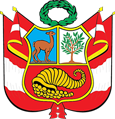PETROPERU and SIMA reaffirm their commitment to work together for the country

Ratifying their obligation to contribute to the development of the country, PETROPERU and the company Servicios Industriales de la Marina S.A. (SIMA) signed an Inter-institutional Cooperation Framework Agreement that will allow the state oil company to intensify the development of its activities, through vessels for the transport of fuels in general, as well as metal-mechanical infrastructure for their storage.
The agreement, which will last for two years, will allow the construction of new barges for the river transportation of fuels on the rivers of the Peruvian Amazon, helping to generate development throughout the Peruvian jungle.
In the virtual ceremony, the Chairman of the Board of PETROPERU, Eduardo Guevara Dodds, thanked SIMA for this permanent collaboration, while specifying that this agreement will help strengthen the commitment of both institutions with the Amazon when carrying out the river transportation of fuel safely and responsibly.
The signing was made by the Executive Director of SIMA, Rear Admiral Gian Marco Chiapperini Faverio and, on behalf of PETROPERU, was the General Manager, Carlos Barrientos Gonzales, who highlighted the joint work that the state company has been carrying out with SIMA to continue with the construction of barges for the safe transport of fuels by river.
In turn, the high command ratified its firm commitment to continue working for the benefit of the country, ensuring that agreements like this one will allow the development of projects that will benefit more Peruvians.
It should be noted that, at present, PETROPERU has the boats “Laguna”, “Saramuro”, “Río Paranapura” and “Puerto América”, with 20 thousand barrels of fuel each, in addition to “Río Putumayo”, “Río Yarapa” , "Río Pisqui", "Tahuayo", "Río Yavarí", "Río Urubamba" and "Río Ampiyacu", each with the capacity to transport eight thousand barrels of fuel.

